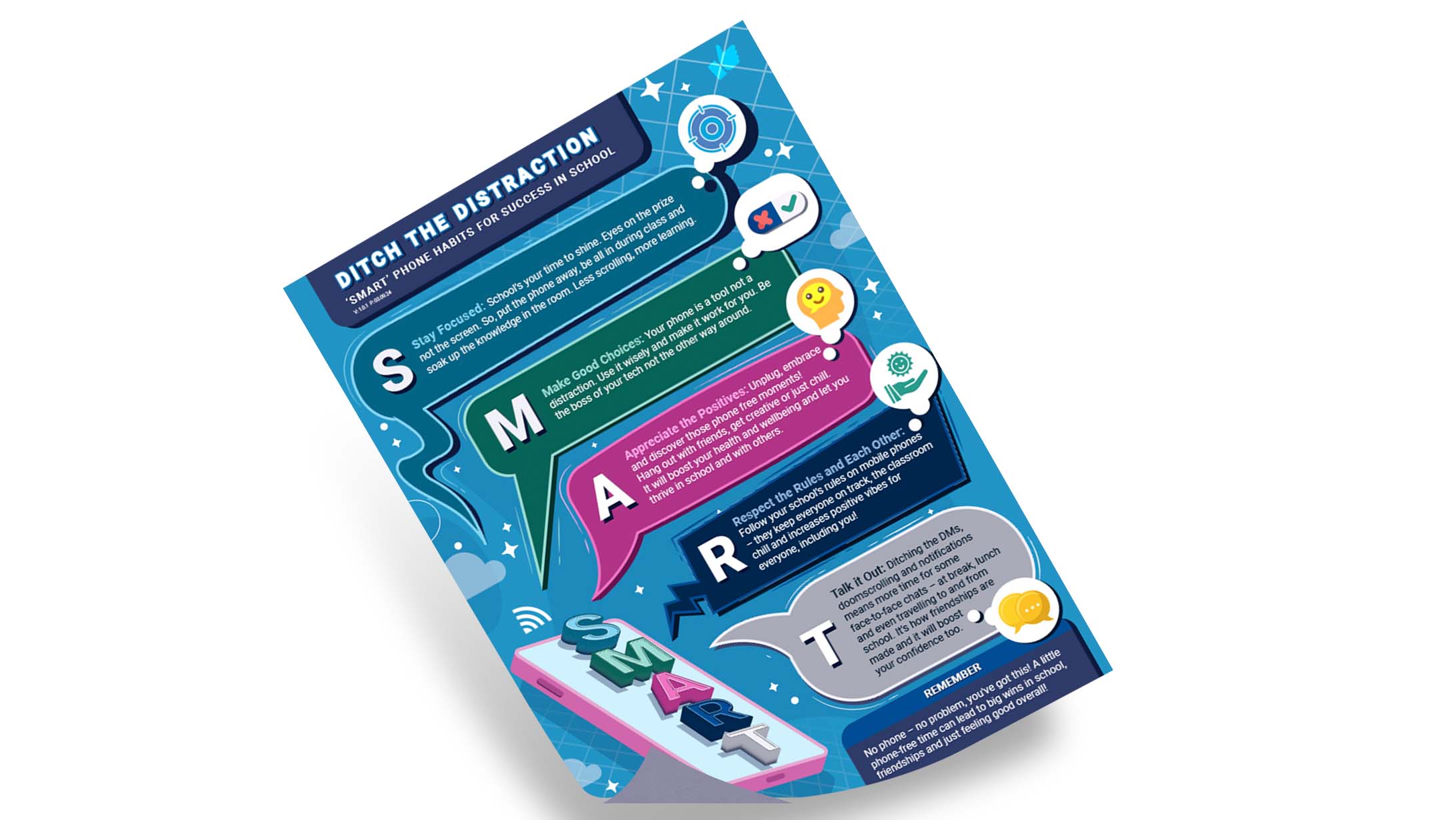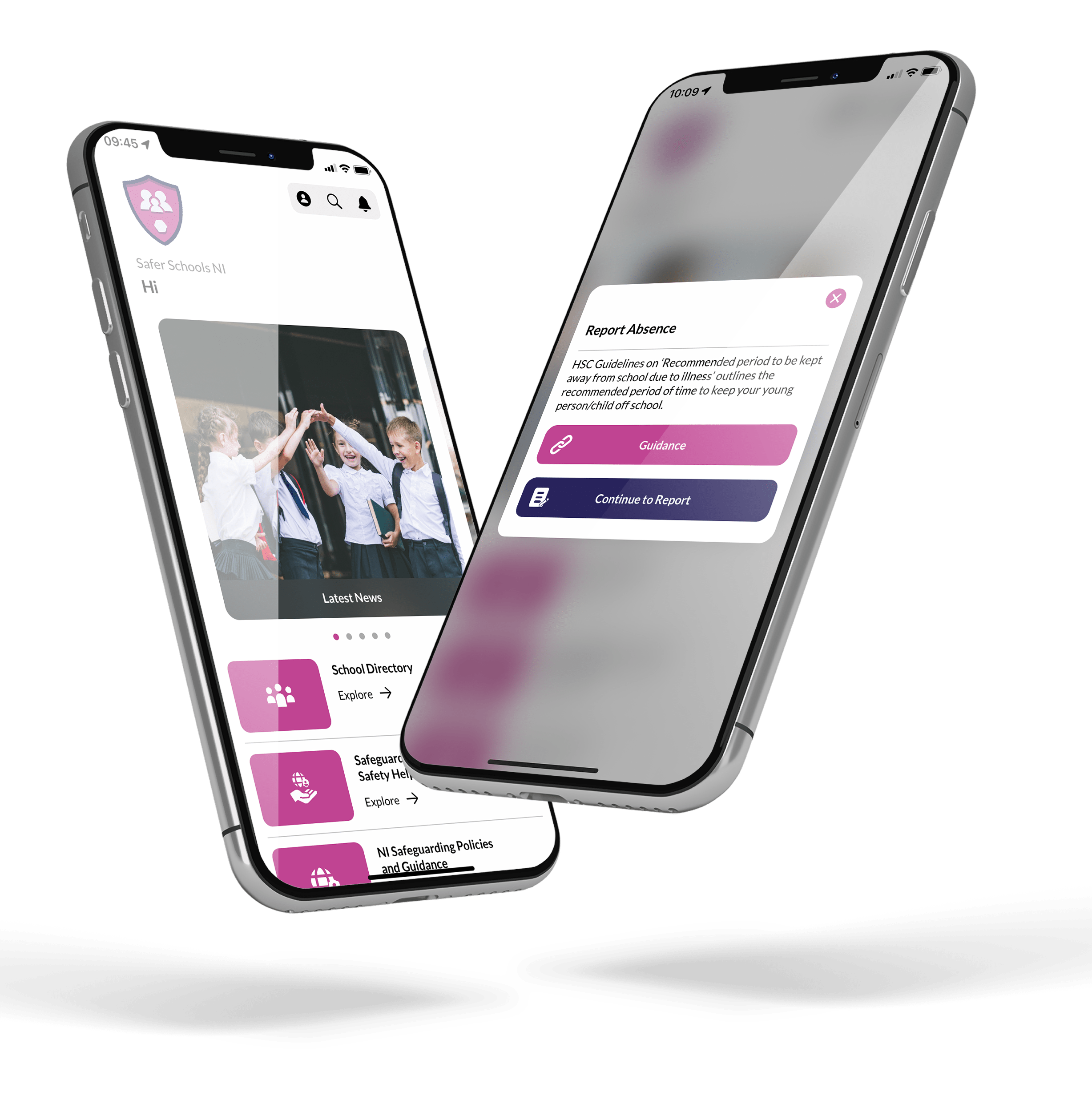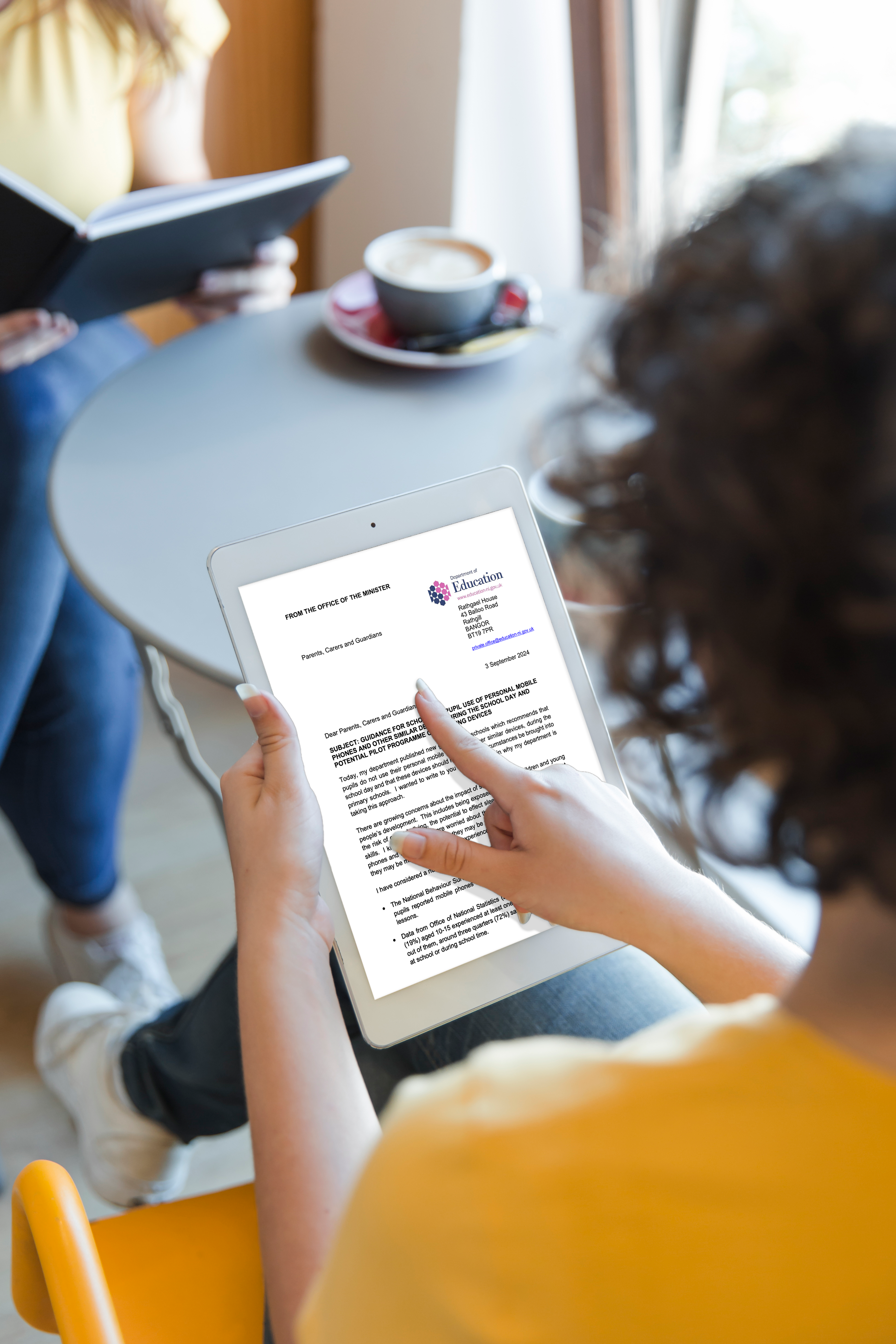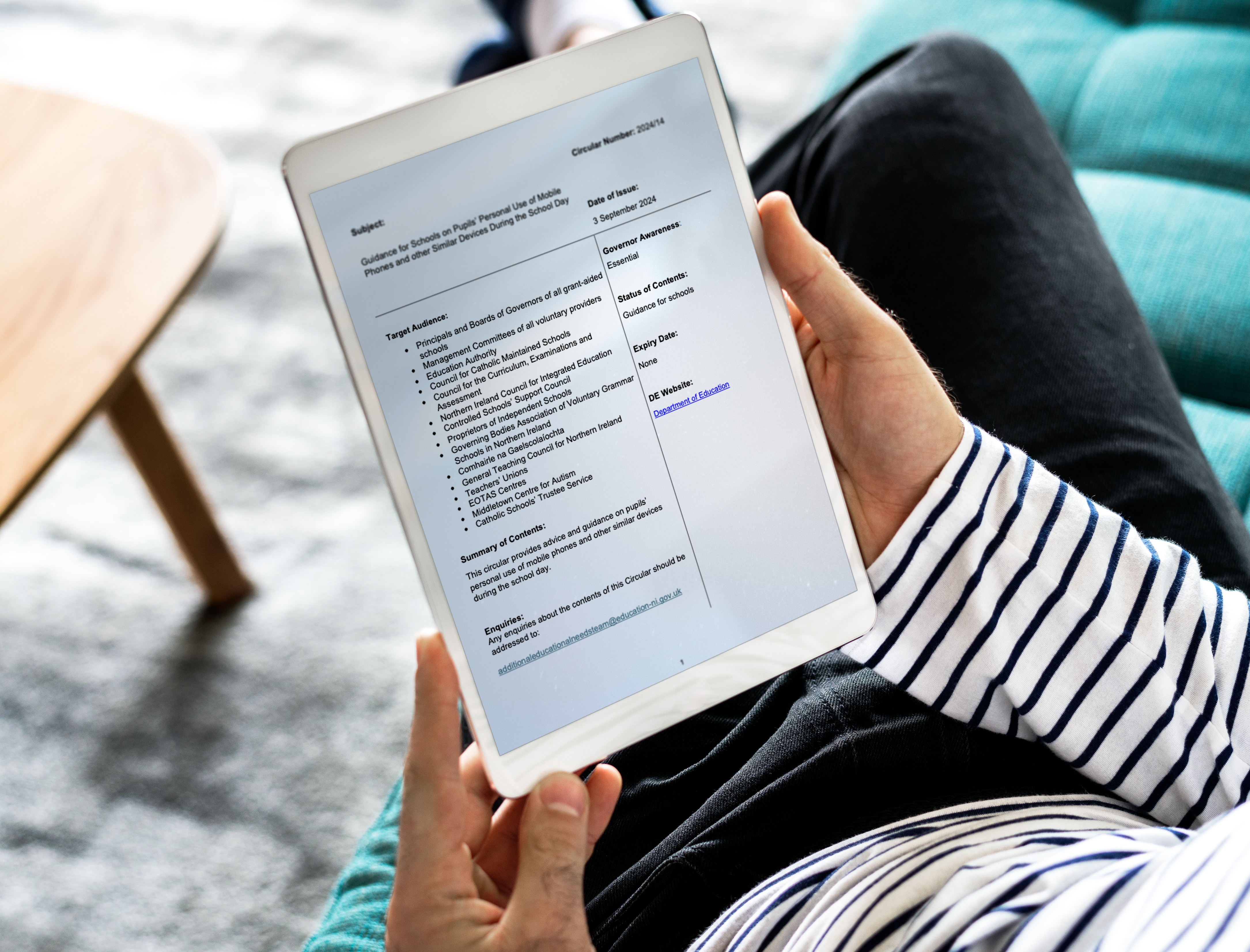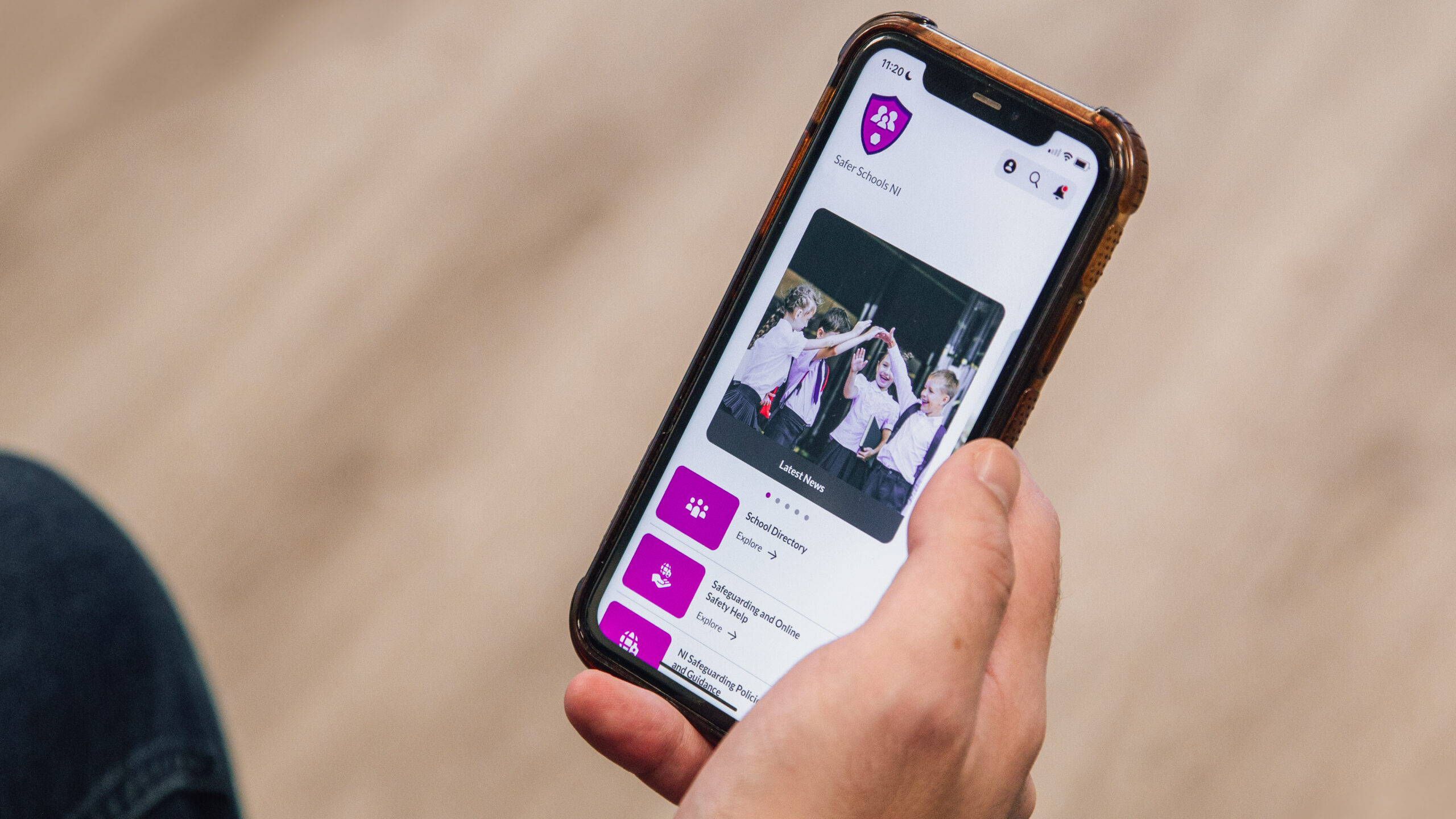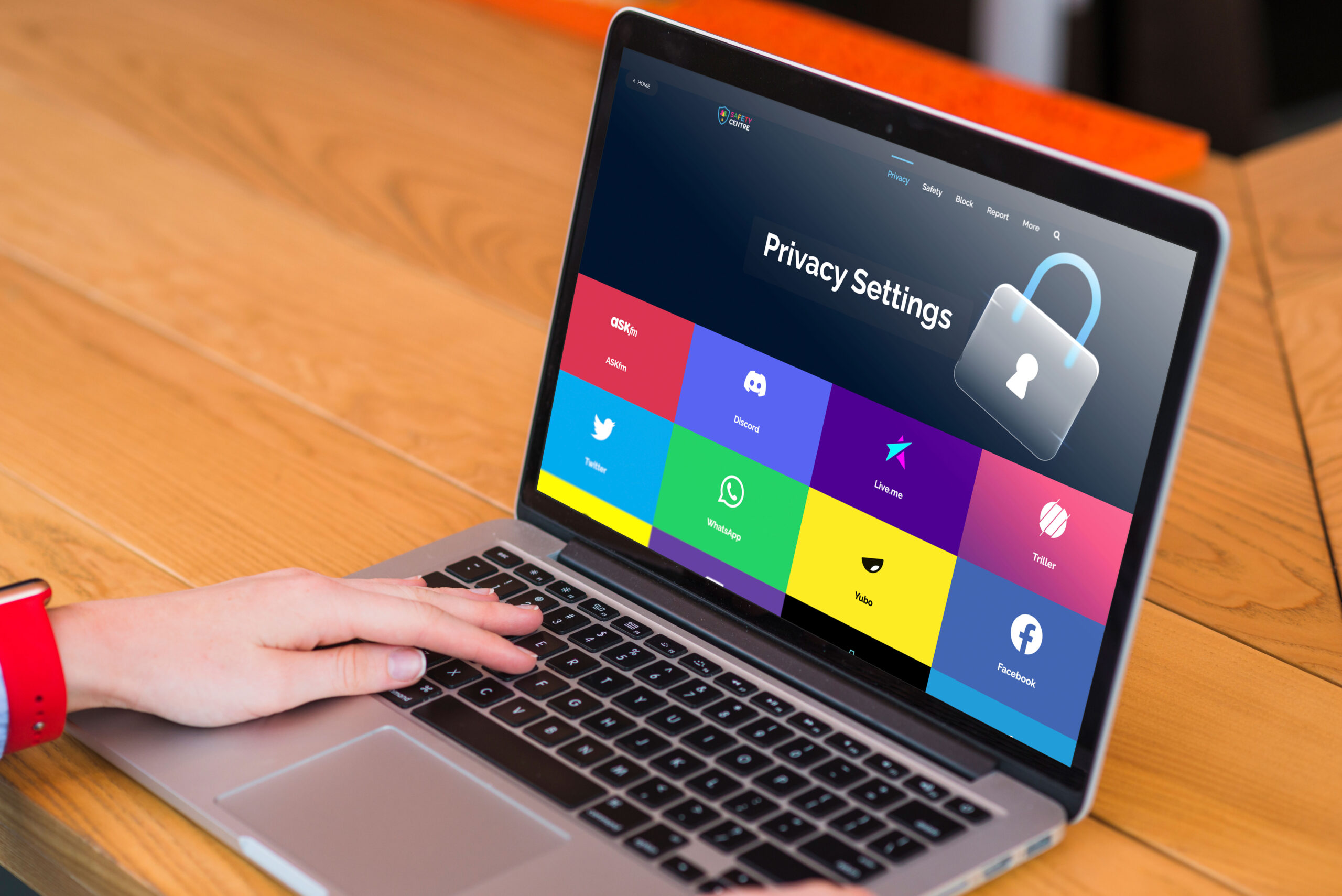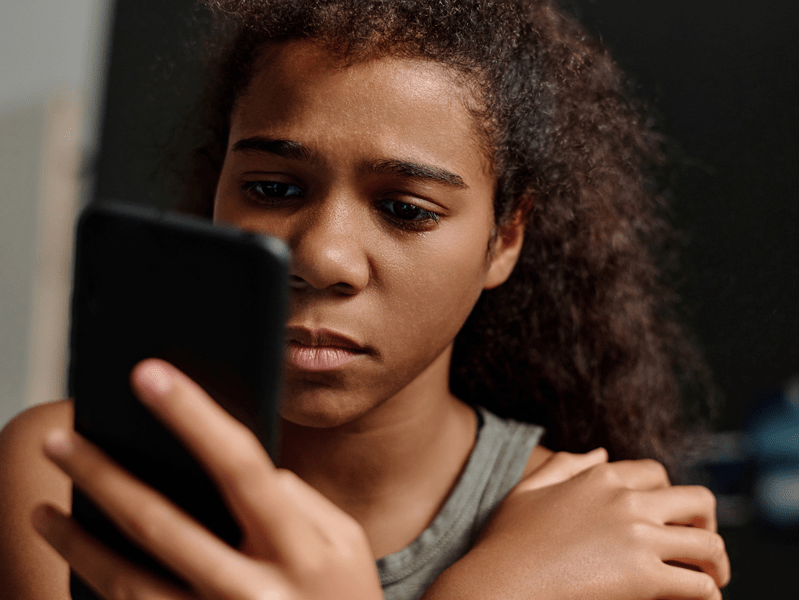Last Updated on 4th September 2024
Reading Time: 5 mins
September 3, 2024
In response to the Department of Education’s new guidelines on mobile phone use during school hours, schools across Northern Ireland are reviewing their policies. As a parent or carer, you might already have established phone rules at home, or you could be facing this issue for the first time. In either case, it is important to understand how your school’s policies might affect your child and how they align with your own views and rules.

To help you navigate these changes, we’ve created ‘SMART‘ guidance to assist parents and carers discussing responsible mobile phone use at home and in school.
Set Boundaries
Start conversations with the children and young people in your care to discuss the benefits of having time away from devices, including:
Use the school’s guidelines as an opportunity to review screen time and agree on clear boundaries for appropriate usage. Establish tech-free times at home, such as during meals, before bedtime, or while doing homework, to encourage balance and allow space for creative outlets. You might even consider creating a list of agreed rules, signing it together and displaying it in your home.
Consider basic phones (commonly known as ‘brick phones’) as an alternative if your child needs a way to stay in touch without the distractions of a smartphone.
Model and Monitor
Adults also spend significant time on screens — with the average adult in the UK spending over 6 hours a day on digital devices. Your children are looking to you as an example, so seek to manage your own screen time as well as theirs!
Many platforms and devices offer parental controls and safety settings that limit screen time and access to inappropriate and harmful content. While these are not a foolproof measure, it is important to ensure that appropriate steps are taken when giving a phone to the child or young person in your care. Check out our Safety Centre for help with this, as well as advice on blocking and reporting harmful content.
Engage in regular, casual discussions about your child’s phone use. Approach these conversations with curiosity rather than confrontation. Questions like, “What do you enjoy about that app?” can open dialogue and help you stay informed about their online activities.
Arrange Offline Activities
Show the children and young people in your care that time away from their devices is not a punishment, but a positive step towards creating a healthy balance between online and offline activities.
Plan fun and entertaining ways to spend their time offline which will encourage them to stick to phone use boundaries. Choose activities like:
If you’re ever unsure, ask the children or young people in your care about their preferences for offline activities. This approach not only makes them feel included and valued but also helps them take ownership of their screen time choices.
Respect Guidance and Individual Needs
While you may have your own perspectives on mobile phone use, it’s important to respect the school’s guidelines as they help create a consistent environment for all students. If you have concerns about the school’s policies, address them directly with the school rather than airing grievances on social media, which can create unnecessary tension.
At the same time, recognise and accommodate your child’s individual needs. Strive to balance rule enforcement with respect for their privacy, ensuring they feel listened to and supported rather than confined. This approach not only fosters trust but also makes it easier for your child to align with both school and family expectations. It also creates a supportive environment where they feel comfortable coming to you with worries or concerns.
Trust and Empower
Building a foundation of trust helps to empower your child to make informed and responsible decisions about their phone use both at home and school. Encourage open communication so they feel comfortable discussing their online experiences and any challenges they encounter.
Support your child by providing guidance while also allowing them the space to manage their phone use independently. Make sure they know they can turn to their trusted adults if they need help or advice. By fostering a supportive environment, you will help your child develop the skills and confidence needed to navigate the digital world safely and responsibly.
Educating and empowering children and young people to use phones responsibly and be safer online is an essential part of their development as technology is an integral part of their lives. Through Safer Schools’ partnership with the Department of Education, you can access the Safer Schools NI App for free which provides expert information and learning resources about the online world and includes access to SBNI’s Online Safety Hub.
Further Resources
SMART Guidance for CYP – Video
The Online Safety Show – What You Need to Know about the Phone Ban Debate
Join our Safeguarding Hub Newsletter Network
Members of our network receive weekly updates on the trends, risks and threats to children and young people online.

